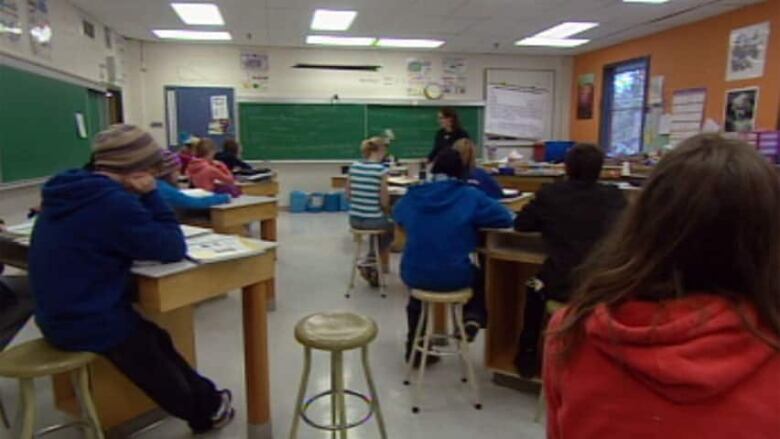Teachers in remote communities face higher workloads: study
Differing skill levels in classrooms, providing recreational activities cited as challenges
A new report on teachers' workloads across the North says those working at rural or remoteschools are atthe greatest risk forburnout.
The report calledUnderstanding Teacher Workloads,found the teachers in the study averaged a 54-hour work week, similar to teachers in the rest of the country. Theyspendabout 15 hours a week outside of school on work-related activities and about three hours a week onextra-curricular activities.

Teachers in rural/remote communities worked an average of five hours more per week than their urban counterparts. Of the 14 teachers in the study with less than five years' experience, 12 were teaching at rural/remote schools.
Teachers also reported challenging working conditions such as student absenteeism, teaching to diverse ability levels in a single classroom, absence orunderstaffingof clerical and education assistant positions, and gaps in cultural literacy in teaching aboriginal students.
The reportwas commissioned by the Northwest Territories Teachers Association in collaboration with the Yukon and Nunavut Teachers Associations.
Teachers in the Northwest Territories, Nunavut, and Yukon were asked to participate by completing short anonymous surveys, and then documentingtheir home and work activities in detail for one week. There were 36 participants from the N.W.T., and 14 from Yukon. The researchers got no responses from teachers in Nunavut.
KatherineMackwood, president of the Yukon Teachers' Association, says teachers are working a lot more time than what's in their contract.
"Especially in the communities when you are also expected to do most of the programming in small communities, recreational time, sporting events," she said. "That's all put on most of the time by teachers."
Mackwoodsays her next step is to meet with Yukon's minister of Education. She says the issues need to be addressed for the sake of the teachers and the students.












_(720p).jpg)


 OFFICIAL HD MUSIC VIDEO.jpg)
.jpg)



























































































